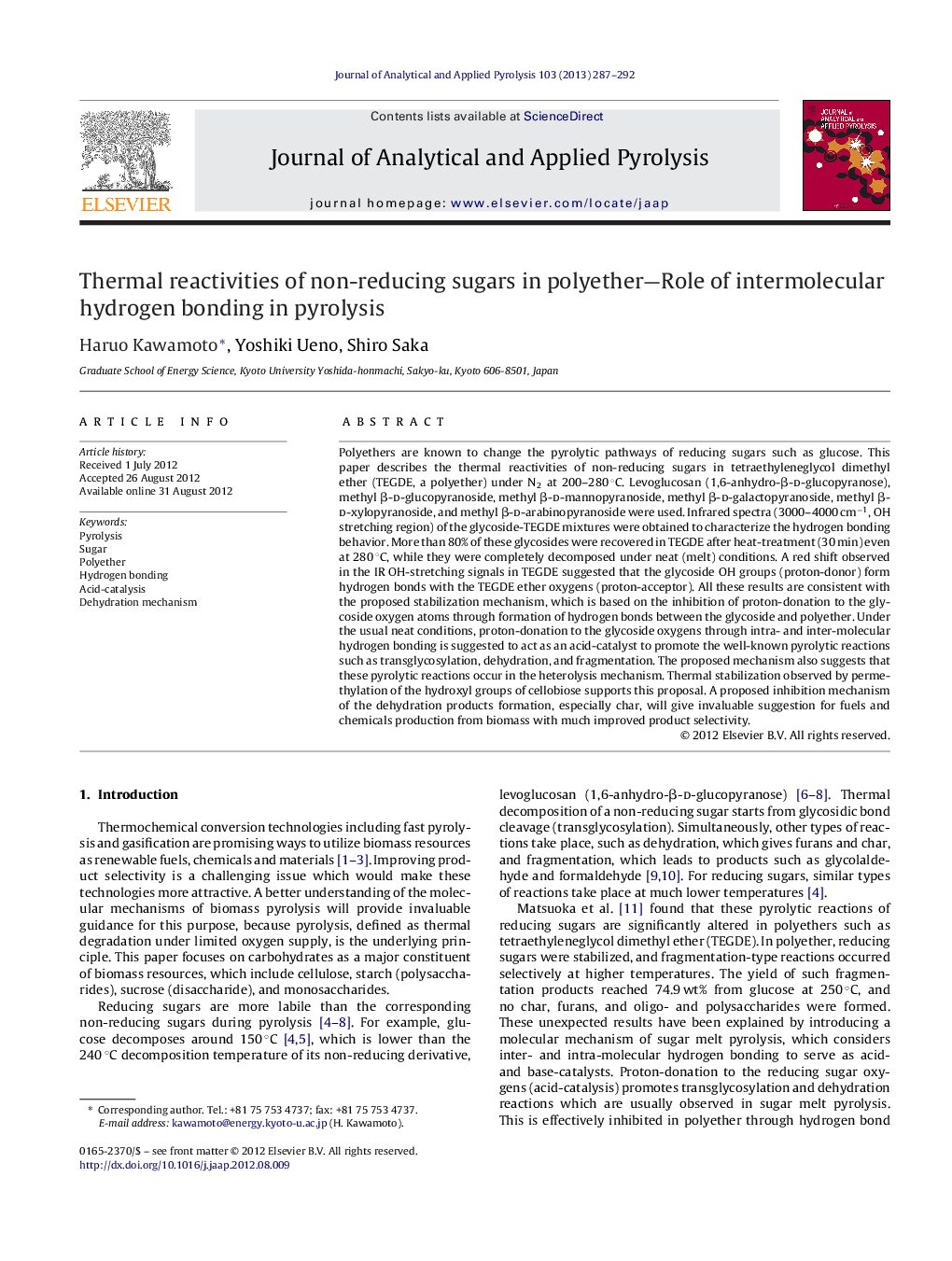| Article ID | Journal | Published Year | Pages | File Type |
|---|---|---|---|---|
| 1197199 | Journal of Analytical and Applied Pyrolysis | 2013 | 6 Pages |
Polyethers are known to change the pyrolytic pathways of reducing sugars such as glucose. This paper describes the thermal reactivities of non-reducing sugars in tetraethyleneglycol dimethyl ether (TEGDE, a polyether) under N2 at 200–280 °C. Levoglucosan (1,6-anhydro-β-d-glucopyranose), methyl β-d-glucopyranoside, methyl β-d-mannopyranoside, methyl β-d-galactopyranoside, methyl β-d-xylopyranoside, and methyl β-d-arabinopyranoside were used. Infrared spectra (3000–4000 cm−1, OH stretching region) of the glycoside-TEGDE mixtures were obtained to characterize the hydrogen bonding behavior. More than 80% of these glycosides were recovered in TEGDE after heat-treatment (30 min) even at 280 °C, while they were completely decomposed under neat (melt) conditions. A red shift observed in the IR OH-stretching signals in TEGDE suggested that the glycoside OH groups (proton-donor) form hydrogen bonds with the TEGDE ether oxygens (proton-acceptor). All these results are consistent with the proposed stabilization mechanism, which is based on the inhibition of proton-donation to the glycoside oxygen atoms through formation of hydrogen bonds between the glycoside and polyether. Under the usual neat conditions, proton-donation to the glycoside oxygens through intra- and inter-molecular hydrogen bonding is suggested to act as an acid-catalyst to promote the well-known pyrolytic reactions such as transglycosylation, dehydration, and fragmentation. The proposed mechanism also suggests that these pyrolytic reactions occur in the heterolysis mechanism. Thermal stabilization observed by permethylation of the hydroxyl groups of cellobiose supports this proposal. A proposed inhibition mechanism of the dehydration products formation, especially char, will give invaluable suggestion for fuels and chemicals production from biomass with much improved product selectivity.
► Non-reducing sugars were stabilized in polyether at high temperatures. ► Dehydration into char was inhibited in polyether. ► Acid-catalysis through hydrogen bonding promotes the neat pyrolysis. ► A stabilization mechanism in polyether was proposed.
